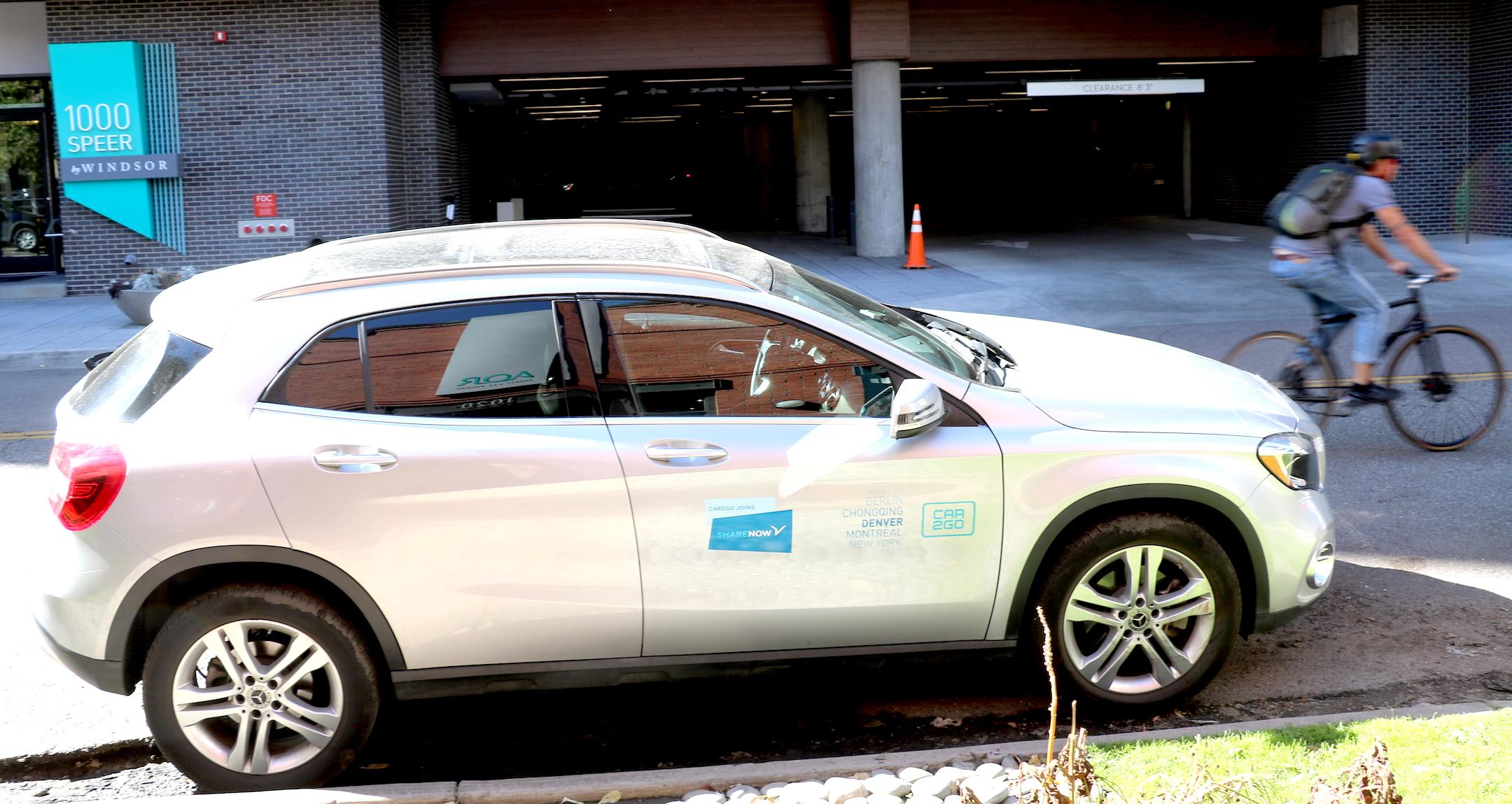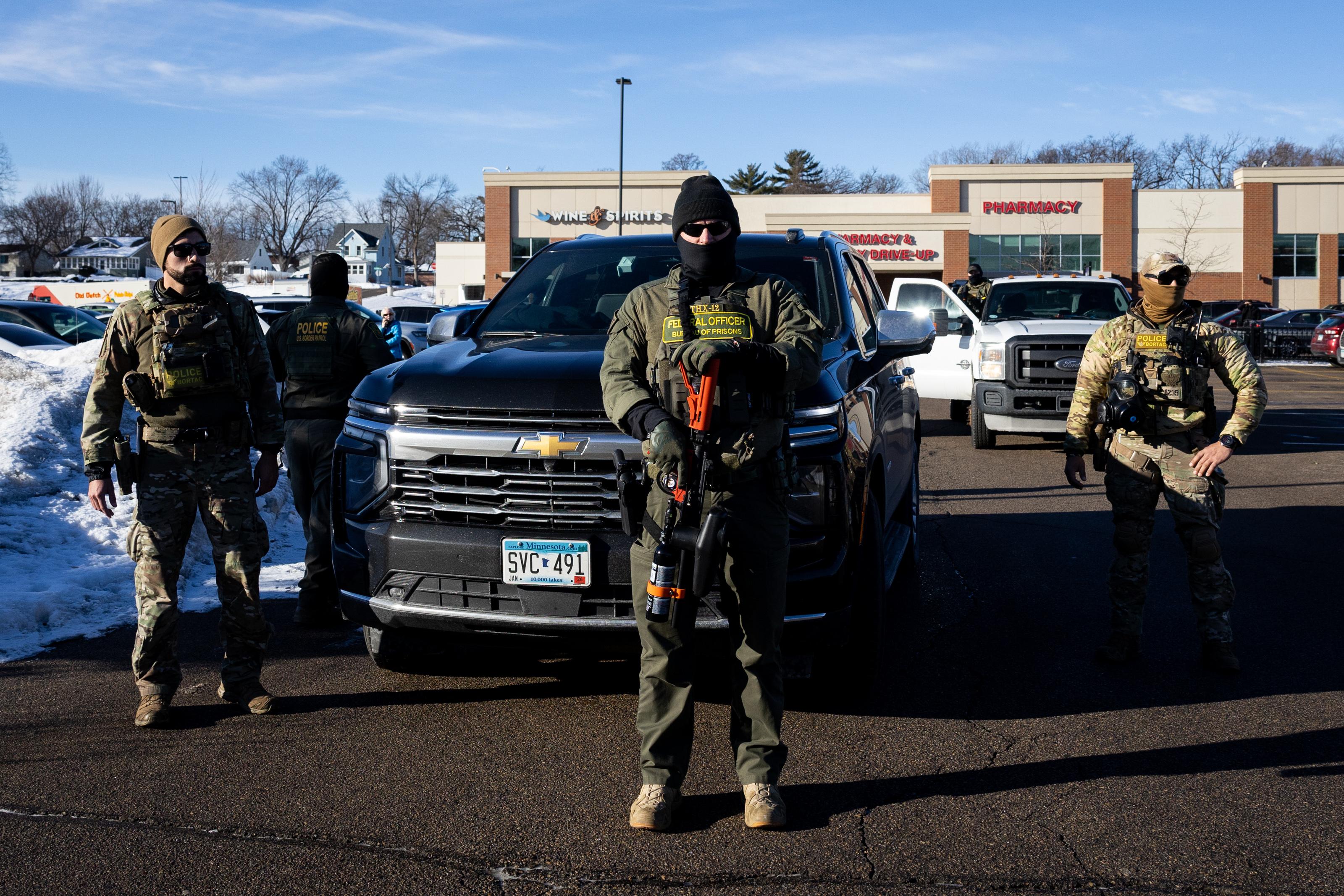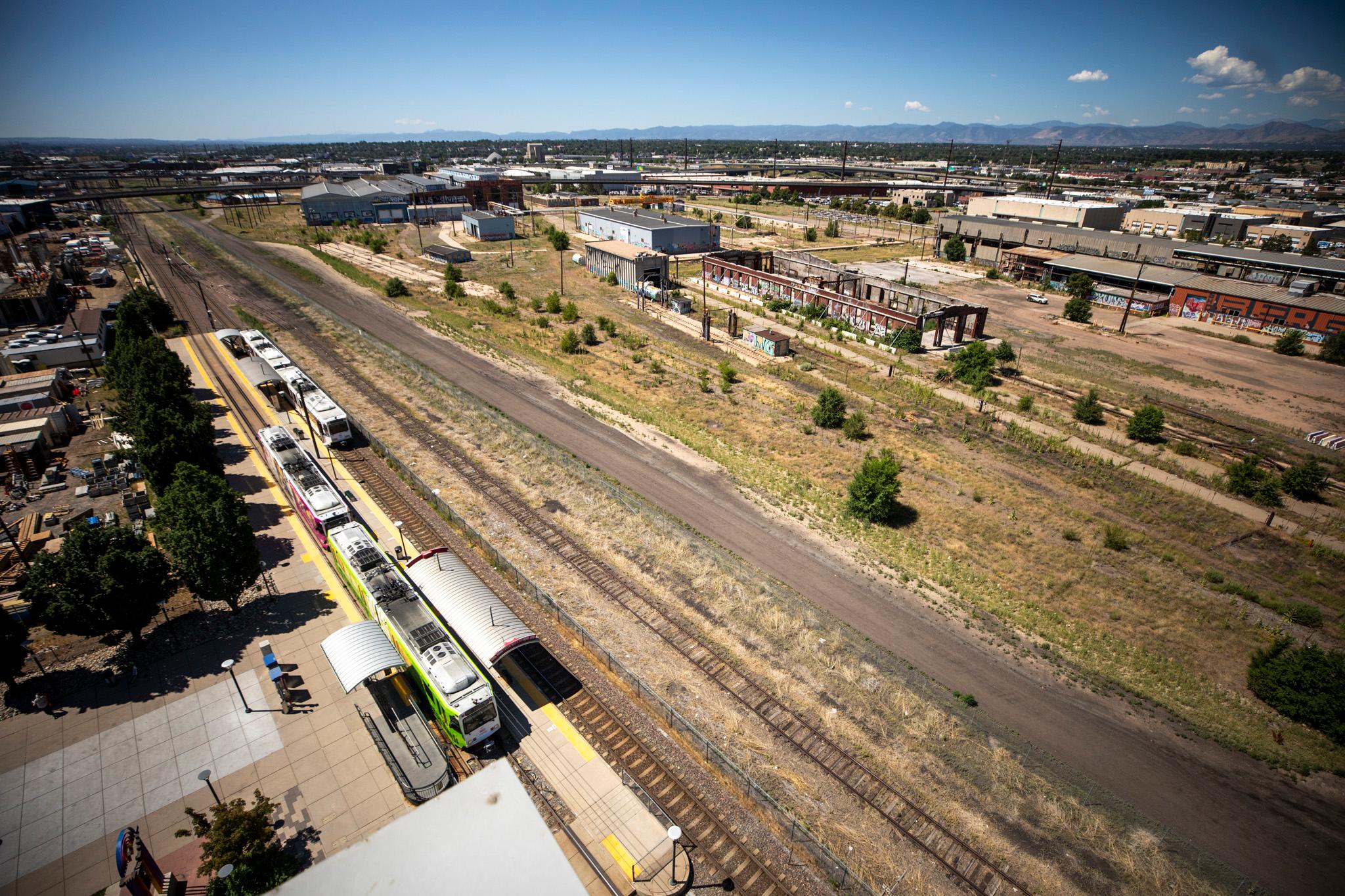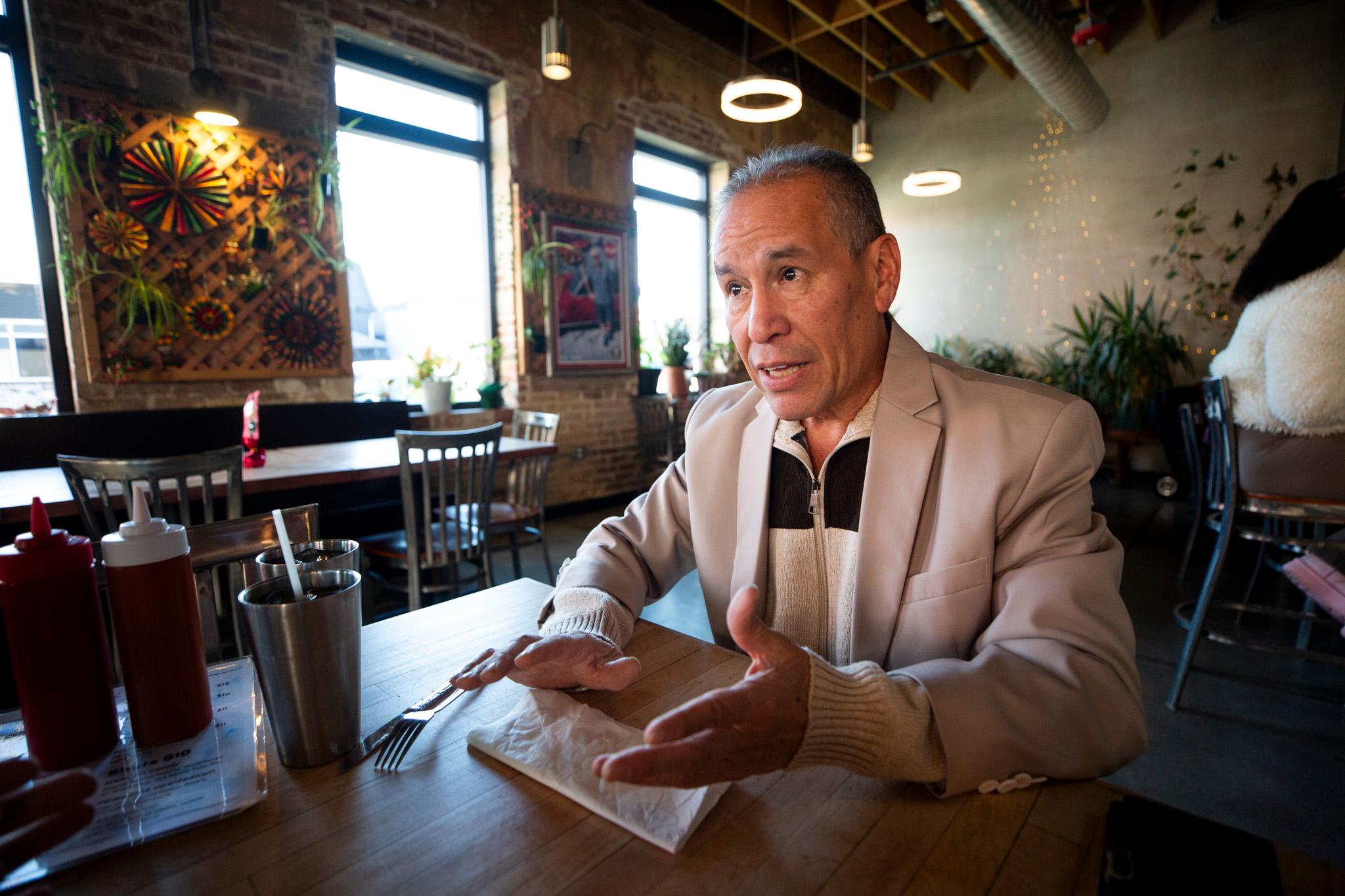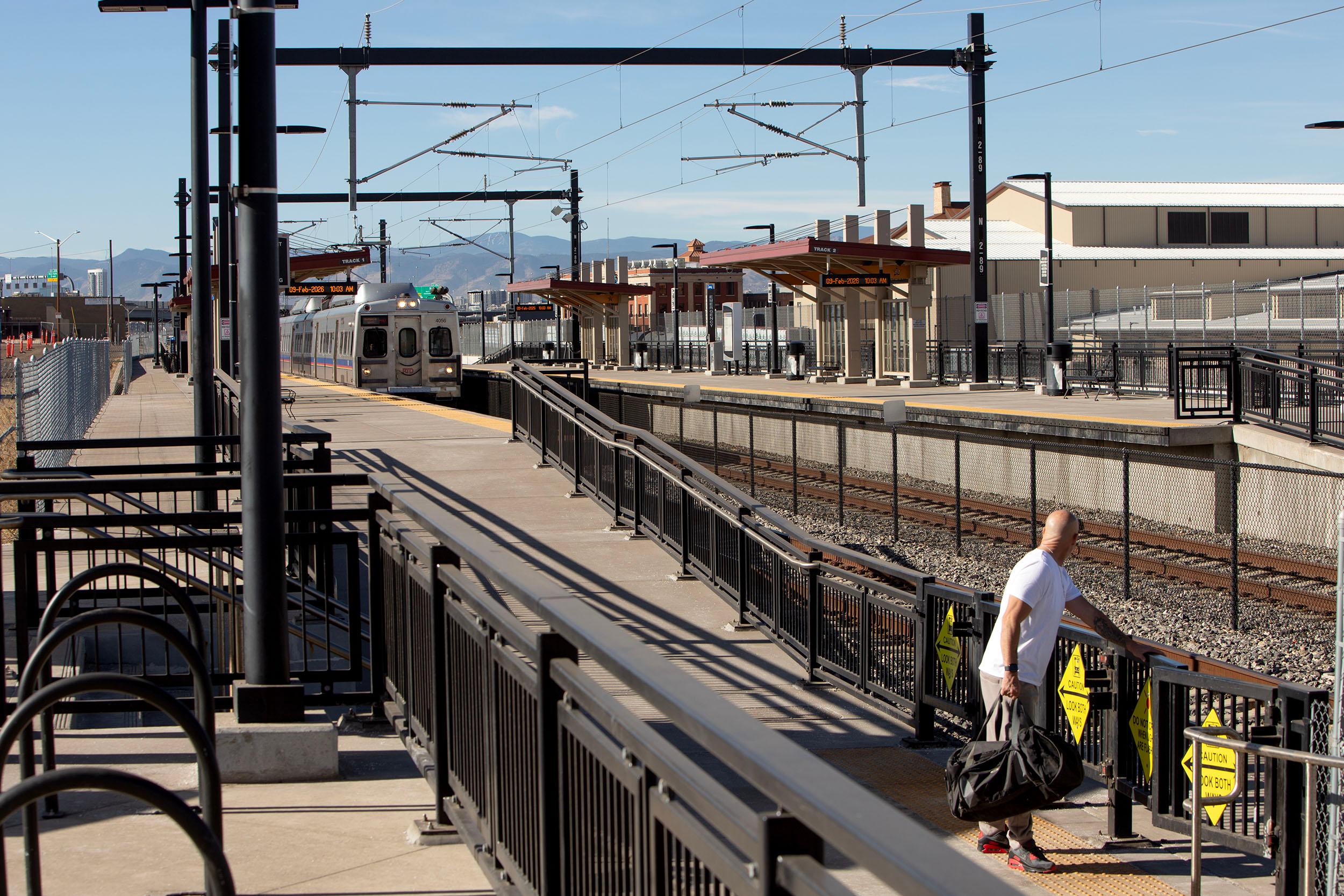Late last month, Car2go announced that it would drive its fleet into the sunset at the end of October, ending more than five years as the city's largest car share operator. The move has left customers -- and the city's transportation goals -- wanting.
If you're unfamiliar, Car2go lets people rent cars with an app. Members can pick them up, drive them around, and park anywhere within a predetermined boundary. Customers tell Denverite it's an affordable service at between 35 cents and 59 cents per minute.
The Daimler-owned company has been a tool in the city government's toolbox that helps people forgo car ownership in favor of less expensive, cleaner ways of traveling.
According to annual member surveys required by Denver Public Works, about one in three car share users -- this includes users of other services like Zipcar, eGo Car Share and Maven -- said they gave up their personal car as a result of joining, either before or after they became members.
Car share services have also helped the Hancock administration chip away at car dependence en route to its goal of drastically reducing solo driving trips. Because of car share, Denverites walk more, drive solo less, bike more and take public transit more -- all while reducing demand for parking spaces, according to the surveys.
They said that, of the people who responded, in 2018 car share companies caused...
- 38 percent of people to drive solo less
- 31 percent of people to walk more
- 26 percent of people to take RTD more
- 19 percent of people to bike more
Car2go has more than 95,000 local members, spokesperson Tiffany Young said via email (the company would not provide an interview). She would not share the number of active users, which is potentially much lower. Since January, members have rented cars about 141,000 times.
"Clearly we wanted them to stay and are disappointed," said Nicholas Williams, deputy chief of staff for Public Works. "We're gonna be welcoming to new things as they come in. I think this is why we're continuing and increasing our support of transit," he added, referring to bus lanes being built downtown.
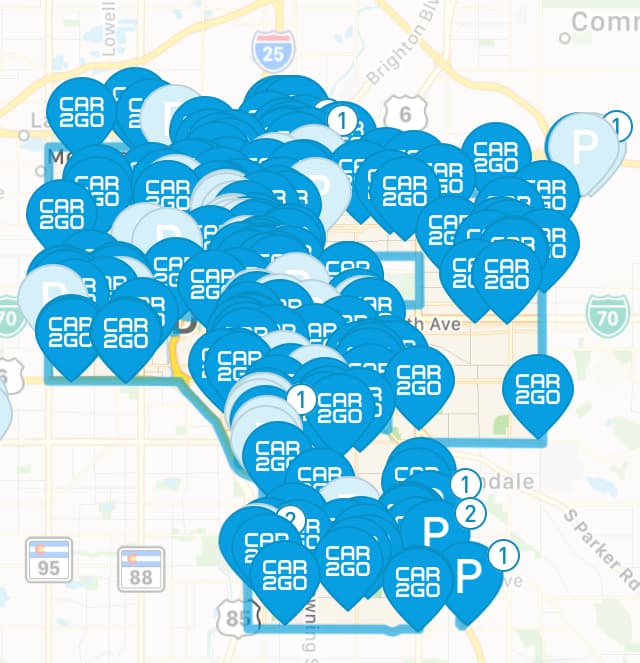
The Hancock administration has vowed to double walking, biking and transit trips by 2030 while reducing solo driving trips to 50 percent. Those trips hover around 70 percent right now.
Some Denverites say the private company's exit will add more personal cars to Denver's public streets.
Russel Koff and his family have lived in Five Points for three years without owning a car. He even used a Car2go to rush his wife to the hospital when she went into labor.
"The day they announced they were leaving town we started looking for a car to buy and are actually picking up our new VW Tiguan tomorrow ... probably at the same time the climate strike is happening downtown," Koff told Denverite last week. "Isn't that tragic?"
Car2go's exit has also driven Brendan Conley and his wife to buy a personal car, which costs the average American about $8,500 including expenses like gas, insurance and repairs, according to NerdWallet.
The couple moved to Platt Park from Florida in August. They never got around to buying a car and were "pleasantly surprised when we realized we could get around without it and certainly didn't need it," Conley said. The day Car2go said it was leaving was the day they decided to buy a car.
"To me, car ownership is a hassle that I wish I was able to do without," the 46-year-old lawyer said.
Others said they will replace car share with more expensive options: Lyft and Uber. Those modes add congestion to the streets too, according to a University of Colorado study, because of "deadheading." That's when drivers are en route to picking up passengers without anybody in their cars.
Steve Knopper, a journalist who works from home in West Highland, said he's going to miss walking, something he does more of because getting to a vehicle often requires a quick trip.
"You walk six blocks, you build in the time and you get a little extra exercise," he said.
Car2go is Denver's largest car share service, but it has others: eGo is a nonprofit and has a much smaller fleet. Zipcar, a for-profit company, makes members return cars to where they got them, as opposed to Car2go's free-floating system.
The Next Big Thing might replace Car2go's dominant role.
Remember when Denver didn't have e-scooters, or when it had several dockless bike-share companies? Shared transportation technology moves so fast that Alyssa Alt, who manages curbside mobility for the city, believes something new is on deck.
Peer-to peer car sharing -- essentially AirBnB for cars -- might be the Thing.
"I think if it was car share in a vacuum then yes it's disappointing that they're gone," Alt said. "When (bike-share company) Ofo left, there was already something there behind it. I don't think you can just chase a single mode and a single operator. What we can do is encourage them to come in and provide the market for them."
Getaround, a "peer-to-peer" model that turns private cars into shared ones, could offer a vision of car share's future in the city.
Colorado general manager for Getaround Zach Houck said Car2go leaving Denver was "disappointing to hear" but that its customers could find shelter in his company's model.
"In order to reduce dependency on personal vehicle ownership, and provide affordable options for those without access to a vehicle, it's critical to have a well-rounded transportation ecosystem," he said.
Car2go will leave because ... well, it's not entirely clear. But.
The proliferation of sharable e-scooters and e-bikes might have cut into Car2go's trips. Denver averaged almost 5,000 scooter trips per day as of February, according to Public Works documents.
Car2go's Young would not say whether the arrival of e-scooters played a role.
She did say that the company knows what makes free-floating car share work, including dense urban cores, low vehicle ownership rates and "robust" public transit. Depending on your perspective, Denver might check up to two of those boxes. Or none of them.
In 2014, the average Denver household owned 1.55 cars, according to city documents. That's high compared to transit-oriented cities. Meanwhile, RTD's bus ridership is falling citywide, which does not signal a "robust" transit system -- though RTD does cover a large region at the expense of better local service. And while neighborhoods like Lower Downtown and Capitol Hill are dense, the city is 155 square miles and mostly comprised of single-family neighborhoods, not compact ones.
Where the company is sending its Denver fleet (at least the cars that won't be sold) lend a clue as to what type of city works for its business model. The company will focus on New York and Washington, D.C.

